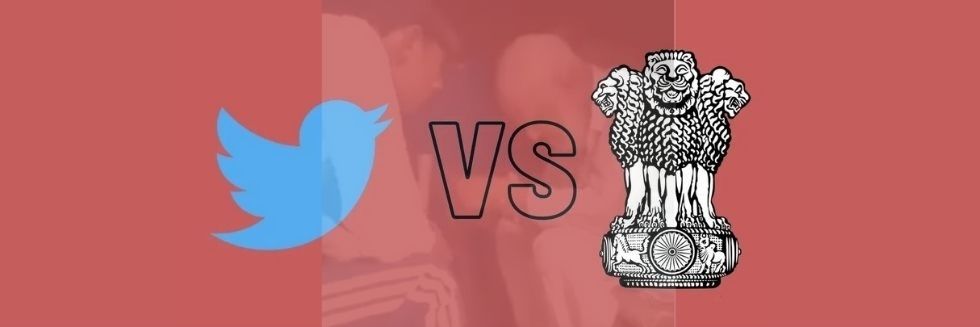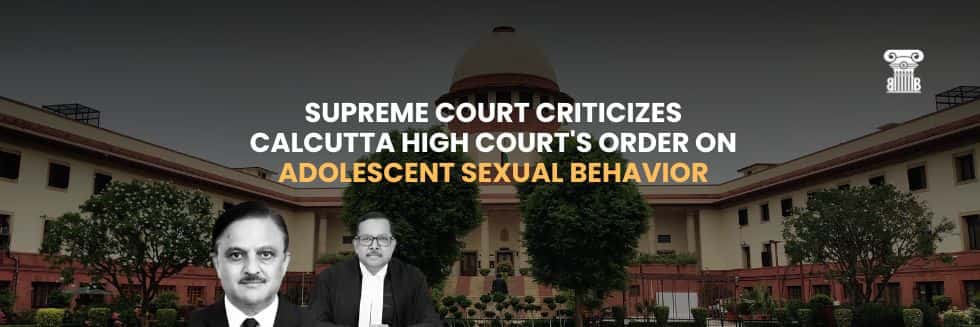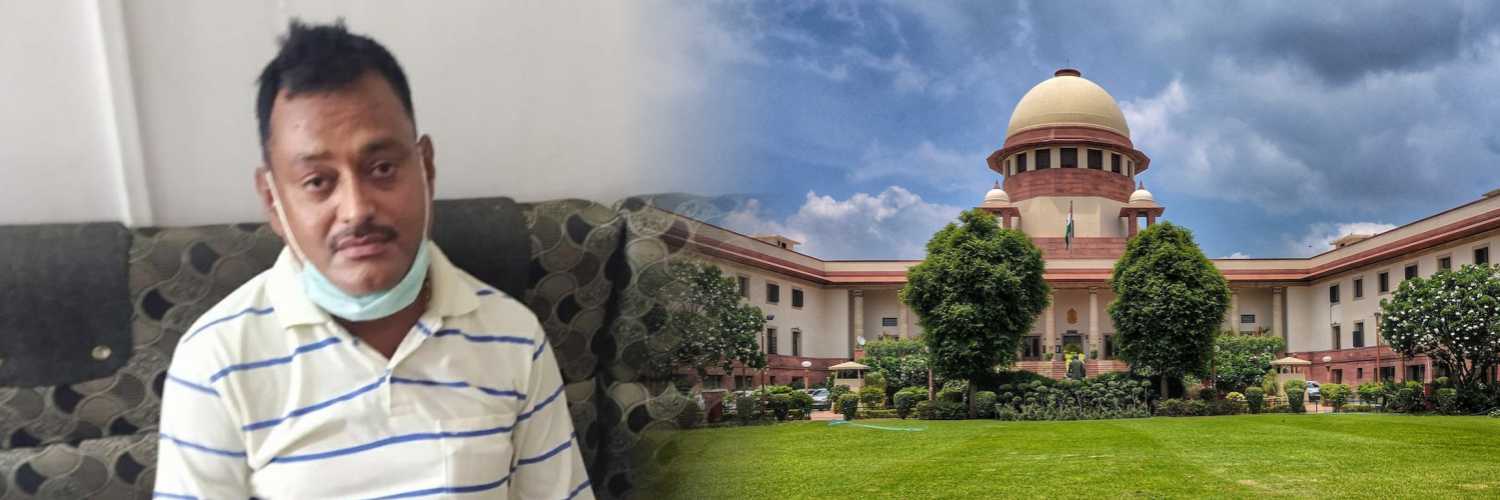The microblogging site Twitter has lost safe harbour immunity in India over the non-compliance to the new Information Technology (IT) Rules, 2021. The social media giant and its executives will now be open to legal action for any kind of objectionable material posted on the platform.
The platform has now lost the “intermediary” status under Section 79 of the Information Technology Act. Consequently, the platform could be held criminally responsible for content on the platform.
Section 79 of Information Technology Act
Exemption from Liability of Intermediary in Certain Cases – An intermediary will be exempted from liability for any third-party information, data, or communication link made available or hosted by it. It will be exempted if the function of the intermediary is limited to providing access to a communication system over which information made available by third parties is transmitted or temporarily stored or hosted.
The exemption is applicable when the intermediary does not initiate the transmission, select the receiver of the transmission and select or modify the information.
Ghaziabad Police Refuted Communal Angle, FIR Against Twitter, Journalists, and Congress Leaders
After losing the legal shield, an FIR has been filed by Ghaziabad police against Twitter Inc and eight others accusing them of spreading fake news. On Monday, a video of an elderly Muslim man identified as Abdul Samad Saifi went viral in which some goons could be seen brutally thrashing him. They also chopped off his beard while he was begging for mercy.
Different angles of the story are coming out. Ghaziabad police refuted the communal angle and also denied the allegations that he was made to chant slogans like “Jai Shri Ram” and “Vande Mataram”. Ghaziabad police have charged Twitter and journalists for inciting communal sentiments.
The FIR has named Twitter INC, Twitter Communications India PVT, AltNews journalist Mohammad Zubair, journalist Rana Ayub, media organisation The Wire, Congress’s Salman Nizami, Maskoor Usmani and Shama Mohamed, and writer Saba Naqvi.
They are booked under IPC Section 153 (provocation for rioting), Section 153A (promoting enmity between different groups), Section 295A (acts intended to outrage religious feelings), Section 505 (mischief), Section 120B (criminal conspiracy), and Section 34 (common intention) of Indian Penal Code.
One Side of The Incident- Initially, it was alleged that the elderly man Abdul Samad Saifi was beaten, assaulted, and forced to chant “Jai Shri Ram” and “Vande Mataram”. In the viral video, we could easily see the assailants chopping off Saifi’s beard. The man also alleged that the goons showed him some videos of attacks on Muslims to terrorise him.
Ghaziabad Police Denied Communal Angle – Ghaziabad police, who is officially investigating the matter has stated that there is no communal angle. The police communicated that it was an interpersonal matter. As per Ghaziabad police, Abdul Samad Saifi had given one of the assailants an amulet (Taveez) which allegedly affected them negatively.
Abdul Samad Saifi’s Family Challenged Ghaziabad Police Claims
Amid conflicting versions of the incident, family of the victim Abdul Samad Saifi has challenged Ghaziabad police claims that there was no communal angle. They even shared the copy of the FIR which clearly mentioned that Saifi had been subjected to communal taunts and threats. They claimed that police had ignored the major parts of the FIR. The family has also denied the claims about the amulet business. They submitted that no one in their family is involved in amulet business.
“Twitter Portrays Itself As Flag Bearer Free Speech”: Union IT Minister Ravi Shankar Prasad
There are numerous queries arising as to whether Twitter is entitled to safe harbour provision. However, the simple fact of the matter is that Twitter has failed to comply with the Intermediary Guidelines that came into effect from the 26th of May.
— Ravi Shankar Prasad (@rsprasad) June 16, 2021
Further, Twitter was given multiple opportunities to comply with the same, however it has deliberately chosen the path of non compliance.
— Ravi Shankar Prasad (@rsprasad) June 16, 2021
The culture of India varies like its large geography. In certain scenarios, with the amplification of social media, even a small spark can cause a fire, especially with the menace of fake news. This was one of the objectives of bringing the Intermediary Guidelines.
— Ravi Shankar Prasad (@rsprasad) June 16, 2021
It is astounding that Twitter which portrays itself as the flag bearer of free speech, chooses the path of deliberate defiance when it comes to the Intermediary Guidelines.
— Ravi Shankar Prasad (@rsprasad) June 16, 2021
Further, what is perplexing is that Twitter fails to address the grievances of users by refusing to set up process as mandated by the law of the land. Additionally, it chooses a policy of flagging manipulates media, only when it suits, its likes and dislikes.
— Ravi Shankar Prasad (@rsprasad) June 16, 2021
What happened in UP was illustrative of Twitter’s arbitrariness in fighting fake news. While Twitter has been over enthusiastic about its fact checking mechanism, it’s failure to act in multiple cases like UP is perplexing & indicates its inconsistency in fighting misinformation.
— Ravi Shankar Prasad (@rsprasad) June 16, 2021
Internet Freedom Foundation Cast Doubt Over “Intermediary Tag” Being Granted by Government
1/ Fact check: We would like to caution against news reports of any social media entity (a significant entity) losing the “protective shield” of an “intermediary status”. This emerges from an incorrect reading of the law. #TwitterBanInIndia https://t.co/r3QNIHDx80
— Internet Freedom Foundation (IFF) (@internetfreedom) June 16, 2021
2/ First! The “intermediary status” is not a registration that is granted by the Government. If you’d like to brush up on this, we’ve got you covered in an explainer we did when incorrect reports emerged over a “social media ban” earlier this month.https://t.co/ewOM8A8kOJ
— Internet Freedom Foundation (IFF) (@internetfreedom) June 16, 2021
3/ The present concerns arise from Rule 7 of the IT Rules, but Rule 7 only says that the provisions of Section 79 of the IT Act won’t apply to intermediaries that fail to observe the IT Rules. pic.twitter.com/hZeYw7sA53
— Internet Freedom Foundation (IFF) (@internetfreedom) June 16, 2021
4/ The so-called “intermediary status” is actually a technical qualification as per criteria under the Section 2(1)(ua)(w) of the IT Act (see link). This should be read with Section 79 (explained in the next tweet). https://t.co/nJOP9eVkoM
— Internet Freedom Foundation (IFF) (@internetfreedom) June 16, 2021
5/ As per Section 79, intermediaries are immune from liability/penalty if they comply with legal takedown requests of user posts from courts & public authorities. As we explain, this is threatened by the IT Rules, 2021. https://t.co/LXdbvRP2uY
— Internet Freedom Foundation (IFF) (@internetfreedom) June 16, 2021
6/ The new IT Rules, as per several digital rights organisations, are unconstitutional. In fact, they have been challenged in several state High Courts. For instance, this recent challenge by T.M. Krishna. https://t.co/pVXmlBqHfK
— Internet Freedom Foundation (IFF) (@internetfreedom) June 16, 2021
Final Notice to Twitter on June 5
“Twitter Inc. is hereby given one last notice to immediately comply with the Rules, failing which the exemption from liability available under section 79 of the IT Act, 2000 shall stand withdrawn and Twitter shall be liable for consequences as per the IT Act and other penal laws of India,” Meity said.
Earlier, Twitter had expressed resistance to comply with the new IT rules citing the reason that it will be harmful to the fundamental rights to freedom and privacy for the people of India. “We will continue to be strictly guided by principles of transparency, a commitment to empowering every voice on the service, and protecting freedom of expression and privacy under the rule of law,” said a Twitter Spokesperson.
However, the platform made appointments on a contractual basis and apprised the government about the development recently. The appointments made on a contractual basis were not considered fully compliant with the new rules.
TM Krishna Moved Madras High Court against New IT Rules
On June 10, Madras High Court issued a notice to the Centre over a writ petition filed by eminent Carnatic vocalist and Ramon Magsaysay Awardee TM Krishna who has challenged the constitutional validity of Information Technology (Guidelines For Intermediaries And Digital Media Ethics Code) Rules, 2021 notified on February 25.
“I submit that the impugned Rules offend my rights as an artist and a cultural commentator by both imposing a chilling effect on free speech and by impinging on my right to privacy.”






